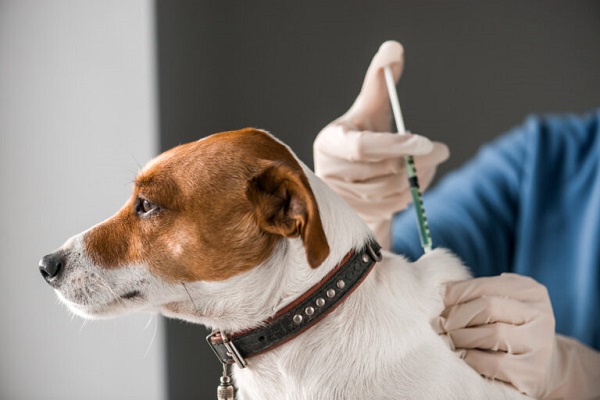Can Pets Be Over-Vaccinated?

Hey furparents! Let’s talk about a question I hear more and more in the clinic and online:
“Are we over-vaccinating our pets?”
It’s totally fair to wonder — especially with all the info floating around on social media. So let’s clear the air, bust a few myths, and help you understand what’s truly best for your furkid.
First things first — why do pets need booster vaccines?
Vaccines don’t always give lifelong protection. Over time, your pet’s immunity can fade, which leaves them vulnerable to getting sick again.
That’s why booster shots are important — they’re like little reminders for the immune system to stay alert.
According to WSAVA (World Small Animal Veterinary Association), core vaccine boosters are recommended every 3 years after your pet finishes their puppy or kitten series and gets their 12-month booster.
Some other vaccines (like leptospirosis) might need yearly boosters, depending on your pet’s lifestyle and the risk level in your area. Your vet will help you decide what’s necessary.
So don’t worry — boosters aren’t random or “extra.” They’re based on solid dewa4dku science about how long each vaccine actually protects your pet.
So… can pets be over-vaccinated?
Yes, technically — but with proper vet care, it rarely happens.
Some owners worry about “too many shots,” especially if their pets:
- Are older or have chronic illnesses
- Stay strictly indoors
- Had mild vaccine reactions before
That’s where personalised vaccine plans come in. Your primary vet can help decide what’s essential and what’s optional — because vaccination isn’t one-size-fits-all anymore.

What about titre testing?
If you’ve heard of titre tests, awesome!
This is a simple blood test that checks if your pet still has enough antibodies to protect against key diseases — usually distemper, parvovirus, and adenovirus.
If the immunity is still strong, your pet may not need a booster that year.
BUT keep in mind:
🛑 Titre testing doesn’t work for all vaccines (like leptospirosis or kennel cough)
🛑 It can’t replace required vaccines like rabies if it’s legally needed
🛑 It might cost more than a regular booster
Still, for sensitive pets or owners wanting fewer jabs, titre testing is a great option to ask your vet about!
Vaccine Myth Busters!
❌ “My pet had all their shots as a puppy/kitten — they’re protected for life.”
Not quite — immunity fades over time. Boosters are key to keeping your pet protected long-term.
❌ “Indoor pets don’t need vaccines.”
Even indoor pets can be exposed at the vet, during grooming, or from viruses brought in on your shoes or clothes.
❌ “Vaccines are full of chemicals and dangerous.”
Modern vaccines are safely formulated and thoroughly tested. Serious reactions are rare — and the risks of catching preventable diseases are much, much worse.
Zoe’s Bottom Line:
- Yes, over-vaccination can happen — but not if your pet has a smart, personalised vaccine plan.
- Work with your primary vet to tailor vaccines to your pet’s age, health, and lifestyle.
- Titre testing is a great discussion point — especially for adult dogs or pets with health issues.
- Core vaccines are still essential, even for mostly indoor pets.
- And no, your pet’s immune system won’t “overload” from vaccines. Promise!
Your furkid’s health is all about balance — and staying informed is the best way to protect them without doing too much or too little
Disclaimer:
This article is for general education and awareness only. It does not replace a veterinary consultation or diagnosis. Every pet is different — please consult your veterinarian to determine the most appropriate vaccination plan for your individual pet. Information in this post is based on current veterinary guidelines, including the 2023 WSAVA Vaccination Guidelines, and may evolve as new research becomes https://heylink.me/OYO88.com/ available.
Reference:
Day, M.J., Horzinek, M.C., Schultz, R.D., Squires, R.A., & WSAVA Vaccination Guidelines Group. (2023). 2023 WSAVA Vaccination Guidelines for Dogs and Cats. World Small Animal Veterinary Association.
https://www.divulgacion.upiiz.ipn.mx/



















